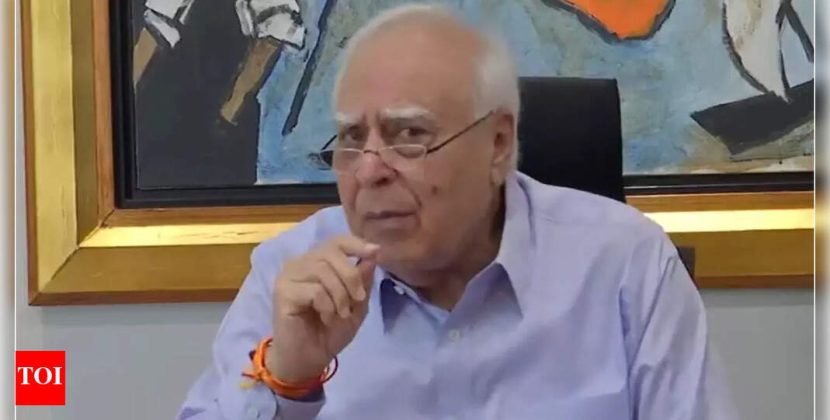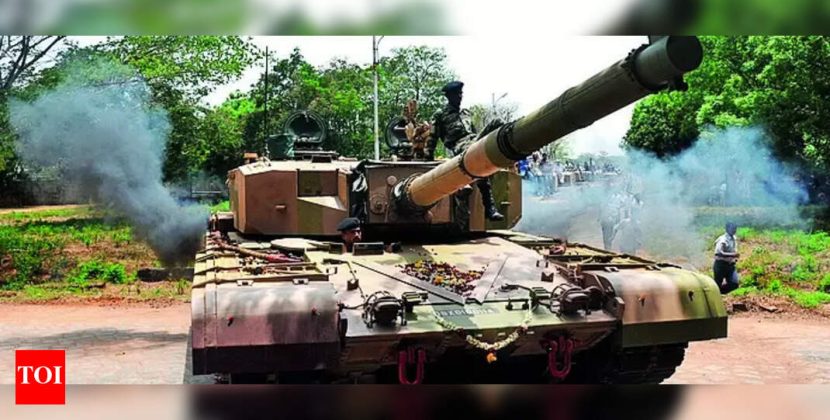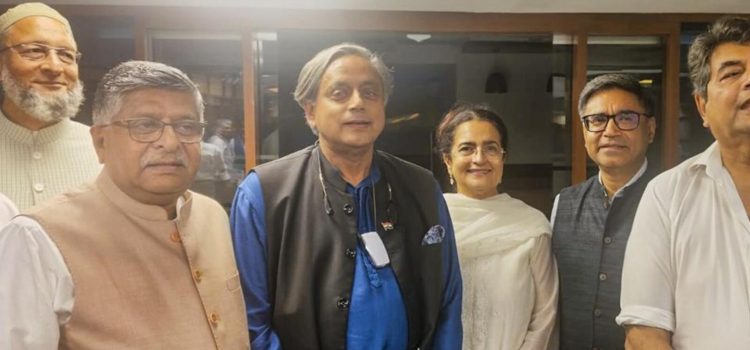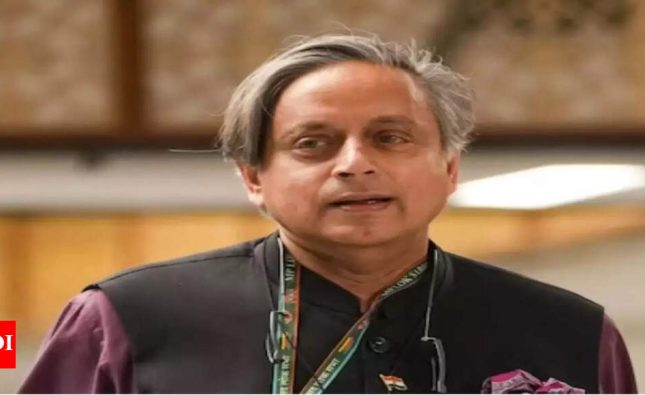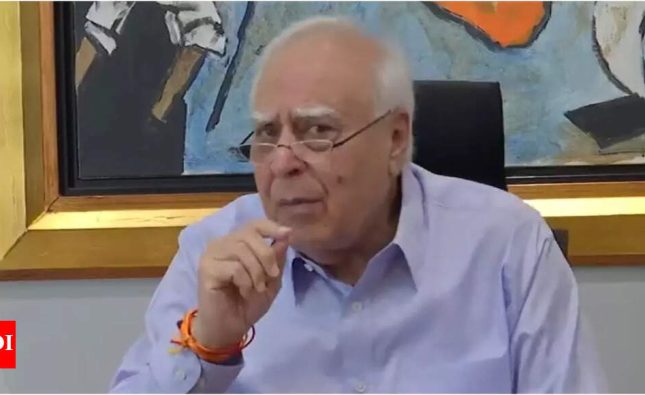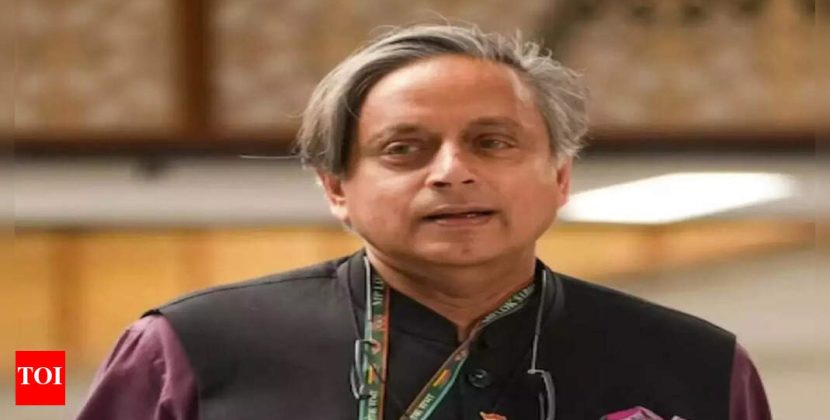
The first of the seven multi-party delegations, which will travel to international capitals to articulate India’s position, will leave on Wednesday, armed with a dossier highlighting Pakistan’s decades-long promotion of terrorism and New Delhi’s new normal in tackling cross-border terror after Operation Sindoor.
Foreign secretary Vikram Misri on Tuesday briefed three of the seven delegations on the major talking points and the global outreach plans. Group three led by Janata Dal (United) lawmaker Sanjay Jha, Group Four led by Shiv Sena leader Shrikant Shinde, and Group 6 led by Dravida Munnetra Kazhagam MP K Kanimozhi, attended the briefing even as the latter didn’t come.
The group led by Shinde — the youngest group leader — will leave New Delhi on Wednesday, said people aware of developments. The briefing went on for more than 1.5 hours.
“We will give a clear message that India is a peace-loving nation but if someone attacks us, we will give a reply. India is focused on economic development. Pakistan is busy with developing terrorism,” said Shinde, whose group is headed to the United Arab Emirates, Liberia, Democratic Republic of Congo, and Sierra Leone.
The delegations will meet parliamentarians, ministers, government officials and think tanks in 33 countries to highlight how India has set a new normal in Operation Sindoor to emphatically tackle cross-border terror, said the people cited above.
The Indian delegations will speak about the major terror attacks sponsored by Pakistan, how Islamabad refused to act even after New Delhi provided clinching evidence of photos, DNA samples and call records in the aftermath of the 2008 Mumbai attacks, and point out that all major international terror attacks including the 9/11 World Trade Center attacks and the 2005 London bombing had direct or indirect links to Pakistan, said the people cited above.
But the thrust will be on the April 22 Pahalgam attack and India’s response to terror.
When asked about the message of the delegations, Bharatiya Janata Party leader SS Ahluwalia told HT, “India has always maintained that the fight is not against the common people but against terrorists. The same notion was said in the UNSC after 9/11. We targeted only terrorists and their hideouts. We didn’t attack any army installations before. Pakistan retaliated. We will talk about all the terror incidents. But they are not learning the lessons. We don’t want war but don’t impose a war upon us. We will not tolerate our losses. We will hit terror targets. If the Pakistan government or its military tries to attack us, we won’t sit quiet.”
Jha, who is leading a delegation to Indonesia, Malaysia, South Korea, Japan and Singapore, said after the meeting, “We will tell the world that all incidents of global terror have a direct or indirect link to Pakistan. We have suffered from Pakistan’s terrorism for 40 years; in 2008, we had given Pakistan all inputs — DNA samples, call details, but Pakistan did nothing. It’s like asking the thief to investigate a robbery case. Time has come to expose Pakistan’s design and tell the world that India has shifted to a new normal, as mentioned by PM Narendra Modi, to tackle Pakistan-sponsored terrorism.”
Congress leader Salman Khurshid, the only former external affairs minister in the delegation, told HT, “What the government has been saying since the Pahalgam attack, was reiterated and re-emphasised on Tuesday. We will clear the air over the ceasefire and maintain that no third party was involved. Pakistan DGMO called our DGMO and said they want a ceasefire.”
The Union parliamentary affairs ministry announced on Saturday that the seven delegations will be led by former Union minister of state Shashi Tharoor; Bharatiya Janata Party leaders Ravi Shankar Prasad and Baijayant ‘Jay’ Panda; Janata Dal (United) leader Sanjay Jha, Dravida Munnetra Kazhagam’s Kanimozhi Karunanidhi, Nationalist Congress Party (Sharadchandra Pawar) leader Supriya Sule, and Shiv Sena leader Shrikant Shinde. But the inclusion of some Opposition leaders without the apparent sanction of their parties sparked a controversy.
The delegation headed by Shinde comprised BJP leaders Bansuri Swaraj, Atul Garg and Manan Kumar Mishra, Indian Union Muslim League leader ET Mohammed Basheer, Biju Janata Dal leader Sasmit Patra, SS Ahluwalia and former ambassador Sujan Chinoy.
“The delegates have been told to underline that India does not want war, and the military action, whether it was the air strikes carried out in Balakot after the Pulwama attack or Operation Sindoor now, have been necessitated by the terror attacks that have links to outfits in Pakistan. India has a zero-tolerance policy towards terrorism and Prime Minister Narendra Modi has reiterated that terror and talks cannot go together,” said a person aware of the details.
To questions about the status of the Indus Water Treaty that has been put in abeyance after the April 22 terror attacks, Misri was learnt to have said that the preamble of the treaty said it was based on “goodwill and friendship” and water was still flowing to Pakistan.
“The preamble of the treaty clearly mentions it was based on goodwill and friendship, but since Pakistan has not maintained those ties, the sentiment falls flat,” said a person privy to the details.
Misri also said that over the years, India raised concerns over the water sharing agreement that was inked in 1960, citing issues such as climate and demographic changes.
“It was an extremely informative and purposeful briefing by foreign secretary Vikram Misri. Several scope and contours of the soft power diplomacy to be disseminated by Indian all- party delegations were briefed by him. The talking points on specific aspects would be shared before our departure and the interlocutors whom we will meet in those nations would be informed to us in due course. The primary outcomes were on exposing Pakistan sponsored terrorism and the impact of Operation Sindoor,” said Patra, a part of Shinde’s team.

